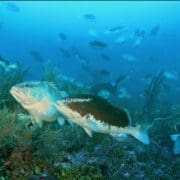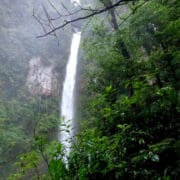Safeguarding Reef Fish and Queen Conch fisheries in the wider Caribbean
Black Immigrant Daily News
The Working Groups on Spawning Aggregations and Queen Conch of the Western Central Atlantic Fishery Commission (WECAFC), convened hybrid meetings on 14-15 and 16 March respectively in San Juan, Puerto Rico.
The meetings were led by WECAFC, a regional fisheries body established under the Food and Agriculture Organization of the United Nations (FAO). However, the Caribbean Fishery Management Council, and The United States National Oceanic and Atmospheric Administration’s National Marine Fisheries Service provided support for the meetings.
The implementation of the Regional Fish Spawning Aggregation Fishery Management Plan (RFSAMP) and the Regional Queen Conch Fisheries Management and Conservation Plan for the WECAFC region were the two main important discussion topics.
The two discussion topics of the hybrid meetings attracted 45 government officials and scientists from 13 member States, including, Bahamas, Belize, Brazil, Colombia, Dominican Republic, Honduras, Jamaica, Nicaragua, Panama, Saint Lucia, Saint Vincent and the Grenadines, Trinidad and Tobago, and the United States of America. Also in attendance were regional and international partners, including, the Caribbean Regional Fisheries Mechanism (CRFM), French Institute for Ocean Science, Regional Activity Centre for the Protocol Concerning Specially Protected Areas and Wildlife for the Wider Caribbean Region, Central American Fisheries and Aquaculture Organization and Convention on International Trade in Endangered Species of Wild Fauna and Flora (CITES).
Spawning aggregations, which refers to the massive gatherings of adult fish for breeding purposes, is critical to the survival of the fisheries sector in the region as many fisherfolk depend on the fishing industry for their livelihood.
During the process of spawning, the fish, in either single or multiple species releases sperm or eggs for the purpose of reproduction at the same place and time. Normally this occurs around objects such as drifting flotsam, rafts, jellyfish and floating seaweed, which offers refuge for juvenile fish from predators.
The spawning aggregations of reef fish, mainly groupers and snappers, have high ecological, biological and socio-economic value. Not only do spawning fish and their offspring benefit, but also the influx of eggs creates a nutrient rich food source for other animals, which contributes to supporting a healthy ecosystem and enhancement of the marine biodiversity in the region.
While countries have boundaries, many reef fish species including groupers, snappers, and parrotfish have none. They can transcend boundaries of over 40 nations, which are connected by ocean currents and intertwined economies, making them potentially available for catch to several countries and fisherfolk.
Millions of people in communities and nations throughout the Western Central Atlantic depend on these coral reef fisheries for food security and sustainable livelihoods from fishing and tourism industries. The lack of regional awareness of the vulnerability of spawning aggregations to fishing and insufficient management of aggregating species are contributing to declines in most areas. Therefore, reversing the trends in the declines of these species that aggregate to spawn, with an initial focus on mutton snapper and the threatened Nassau grouper, is a critical aspect requiring timely enforcement of the measures undertaken by the RFSAMP.
Yvonne Sadovy, one of the leading experts in the development of the RFSAMP stressed, “To effectively manage aggregating species, it is essential to ensure the survival of their spawning aggregations. These are the only times and places such species produce their young. These young fish support fisheries far-and-wide across the region, and well beyond the aggregations themselves. So we need to ‘mainstream’, or integrate, aggregation protection and management at both national and regional levels into fishery and conservation planning, through existing legislation, and by applying the multiple agreements and commitments made around sustainable use and biodiversity conservation”.
Alejandro Acosta, Researcher, Florida Fish and Wildlife Conservation Commission stated, “This meeting was great and allowed us to share perceptions and experiences about the status of Fisheries Stock Assessment methods (FSA) in the Caribbean region. A major outcome was reviewing and updating the recommendations for the sustainability of Fish Spawning Aggregations. Two major take away points from the meeting were the need to implement and increase the outreach programs about the ecological, social and economic benefits of FSA and to encourage and expedite the implementation of the Focus on Nassau Grouper and Mutton Snapper (FSAMP) throughout the region”.
Meanwhile, the objectives of the sixth meeting of the Queen Conch Working Group (QCWG) were to monitor the implementation of the various queen conch recommendations and resolutions, and continue monitoring the implementation of the Regional Queen Conch Fisheries Management and Conservation Plan. During the meeting, the importance of Queen Conch on the socio-economic and environmental sectors of the wider Caribbean region was re-emphasized.
Mauro Gongora, Fisheries Officer in the Belize Fisheries Department expressed, “Belize is pleased to participate in this meeting and remains dedicated to the sustainable management of the queen conch resource. We endeavour to work with our stakeholders and especially our fishers to continue implementing the management measures outlined in the Regional Queen Conch Conservation and Fishery Management Plan”.
Maren Headley, Programme Manager, Fisheries Management and Development, the CRFM Representative and Convener of the QCWG added that, “CRFM welcomes the outputs of the sixth QCWG meeting and is pleased to collaborate with the working group partners. CRFM is looking forward to the commencement of the queen conch genetic study which will give us a clearer picture of the resource connectivity between the countries and help us to combat the Illegal, Unreported, and Unregulated fishing (IUU) fishing.”
Yvette Diei Ouadi, Secretary of WECAFC expressed immense satisfaction with the dedicated inter-sessional efforts by the working group members and the level of engagement that enabled them to meet the objectives of both meetings. She stated, “This sustained quality work is amply recognized in international fora”. She added, “The Decision 19 of the CITES Conference of Parties on queen conch now requires that progress reports on activities of Range States to the CITES Secretariat be made to the QCWG. The Secretariat will then report on progress by the Working Group to the Animals Committee and Standing Committee, which avoids a double reporting”.
The outcome of the deliberations will be tabled for discussion at the 19th Session of the Commission scheduled for 6-8 September 2023, to ensure that the actual benefits of these fisheries for food and nutrition security, income earning, livelihoods and healthy ecosystems are effectively secured and protected.
Donate At Caribbean News Service, we do not charge for our content and we want to keep it that way. We are seeking support from individuals and organisations so we can continue our work & develop CNS further.
NewsAmericasNow.com




